Welcome back! Sorry it’s been a little while, but you know how it goes. Fancy a coffee and quick chat about making a book? Go on then, let’s get into it.
In 2020 I had two books released. This is not a brag, as it was very much not the plan, but they came out with different publishers, so it was less of a coordinated strategy and much closer to a clash.
The two books were Victory Point, and the much less known, British Ice.
British Ice was my first big ‘swing for the fences’ graphic novel. I had been planning it for years in the background as I made my first steps into comics. And although Between the Billboards is technically my first book, that was a collection of my six-part small press series that I had self-published and put out as individual zines.
British Ice was written as a script, designed, and then worked into a pitch, which I sent out to a handful of (optimistic) possible publishers. To my surprise, Top Shelf agreed to do the book, but apparently, according to my unknown status, there would be no advance. I said I wouldn't be able to make the book without taking on work to survive, and as a result, I couldn’t have it done by a specific date. They said that was fine, but if I couldn't give them a date, then they couldn’t schedule it until I completed it.
I agreed to this, as my expectations of what being published actually looked like had been appropriately lowered as I saw friends and colleagues reach that milestone, and increasingly they reported back that behind the velvet curtain, there was in fact, very little. So, initially I was quite happy with my deal. I could go on working and fit in my graphic novel as-and-when, with no stress.
But although the immediate pressure was less, it was constant. As the months went by, whatever I was doing, work or leisure, part of my brain would be reminding me that I should be working on my book...
The thing that had felt like a luxury, began to feel like a burden, and the ‘relaxed’ timescale I was now working to had other unexpected consequences as well. I was still very much in my infancy as an artist and writer, and I was developing and becoming interested in different things at a much faster rate than I realised would be the case. I felt like I had started to outgrow the project before I had even completed it, but I was locked into its story and style.
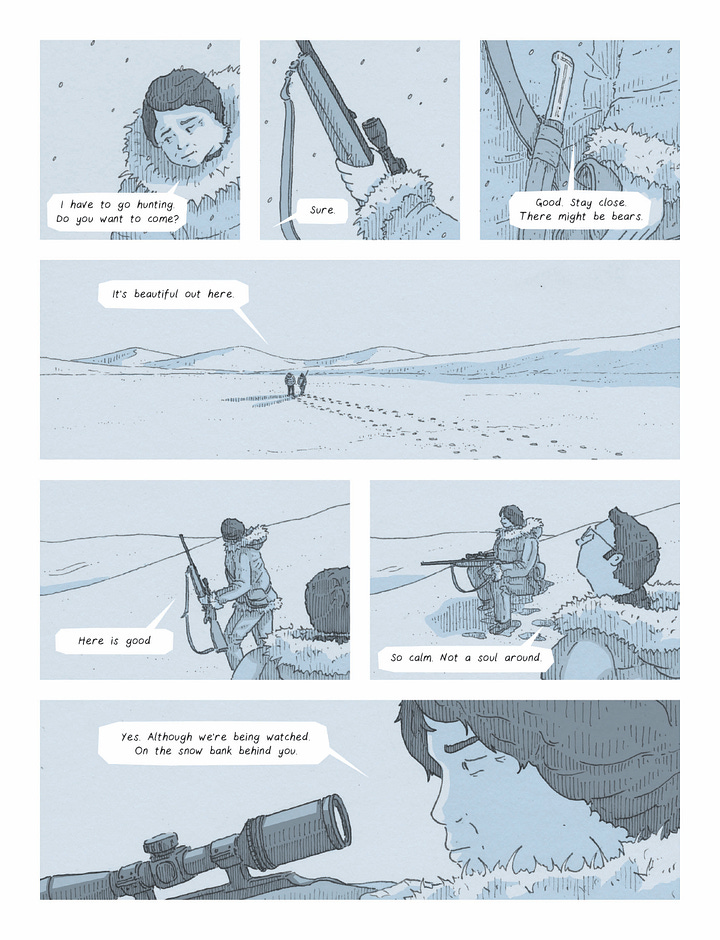
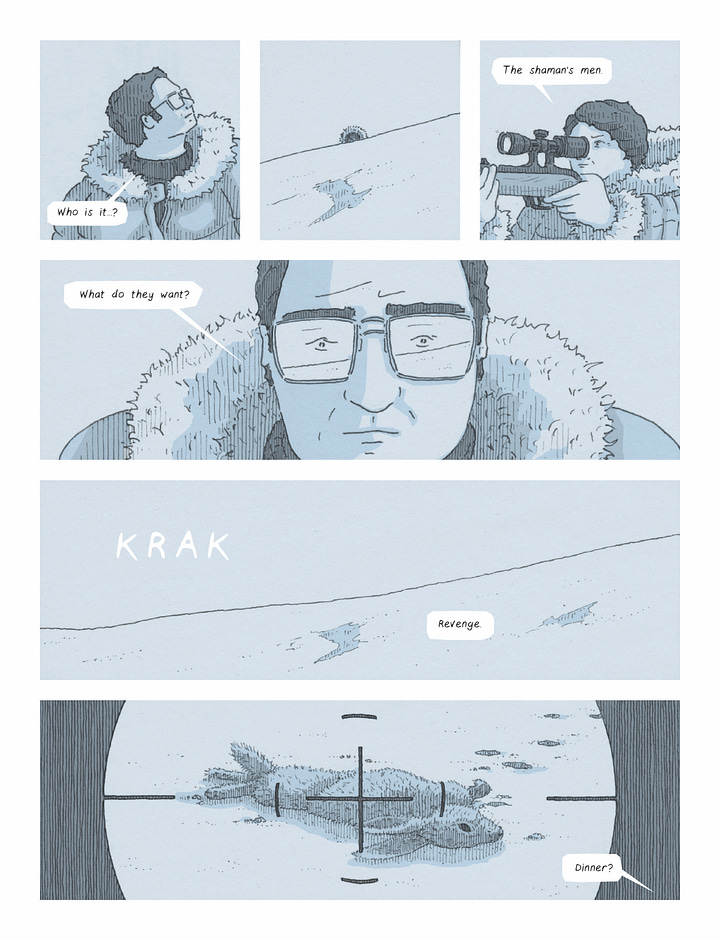
Working on the British Ice also coincided with the my disillusionment with the architectural illustration game and my subsequent transition into working in an illustration style that I not only loved, but was starting to yield my exciting results and interest.
All this contributed to British Ice starting to feel like a slog. To the point where I counterintuitively started to distract myself with self-published side projects that felt far more self-propelling and actually had end points!
Both The Victory Motel collection and KIOSK came out around this time and rejuvenated my creatively, reminding me what I loved about narrative illustration again. But my book wasn’t getting done any quicker.
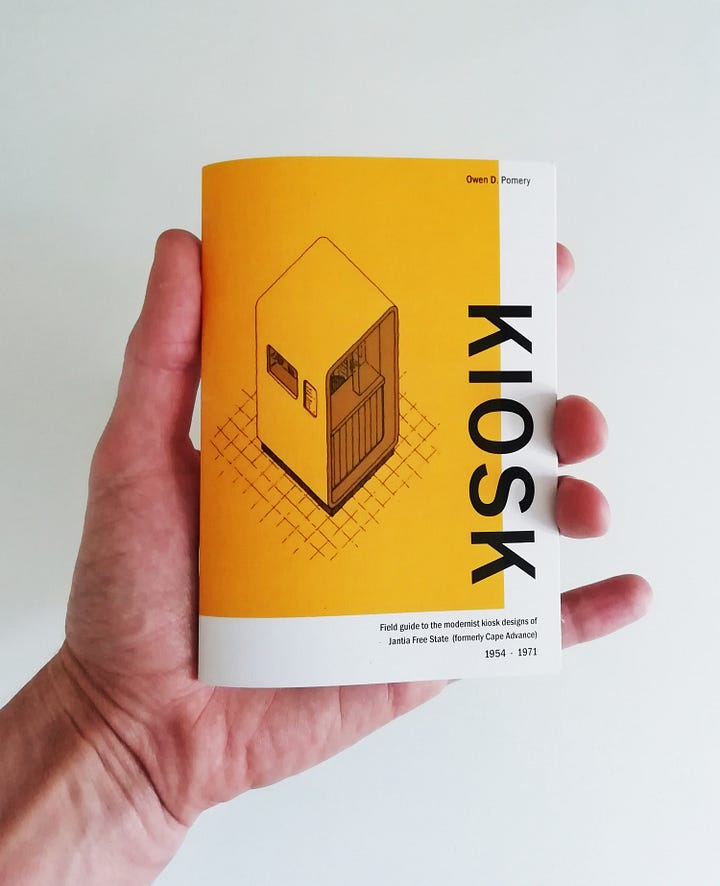

When I finally finished British Ice, it was accepted by the publisher, put into the system, and scheduled for release the best part of two years later. I shelved it mentally, changed gear and headed off in new direction.
I was excited to start bringing together the new way I was drawing with the stories I was writing, or had already written. I wanted my next book to almost be the opposite of British Ice in every way. Full colour, lighter, more human, a simple linear story. Fresh.
And so, I returned to Avery Hill Publishing, to work with friends, based in the same country as me, and made Victory Point.
2020.
As the planets moved into place, both books were scheduled to come out in the same year; 2020. But, as some of you may recall, something else happened that year too. The publishing world, and the actual world, came to a standstill.
British Ice launched in the UK just before it all kicked off. Many of my London comic friends still remember my launch as the last significant social event before it all went mad. In retrospect, it was probably a super-spreader event.
I also didn’t have a beard at the time.
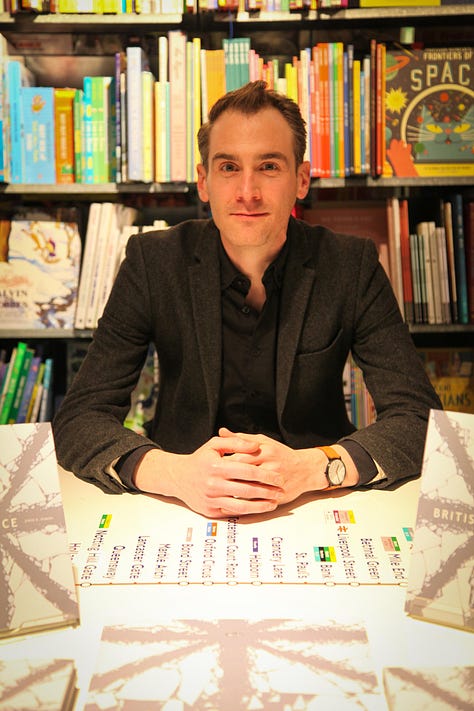
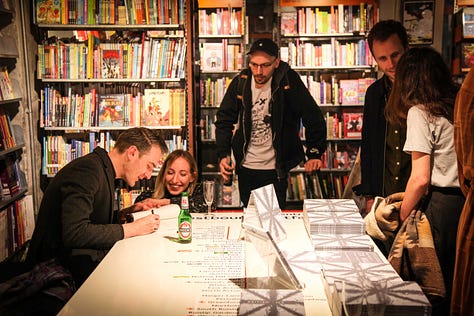
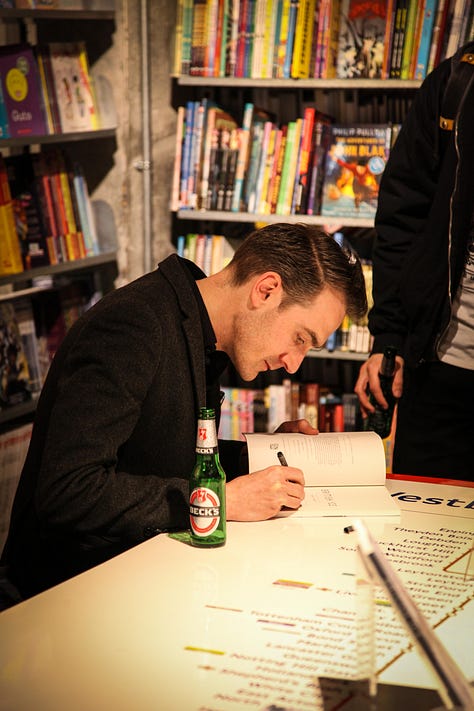
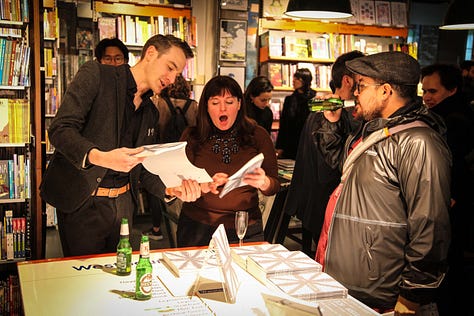
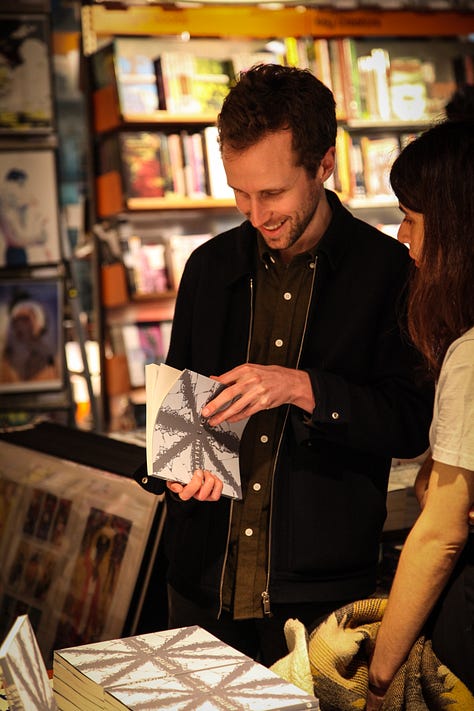
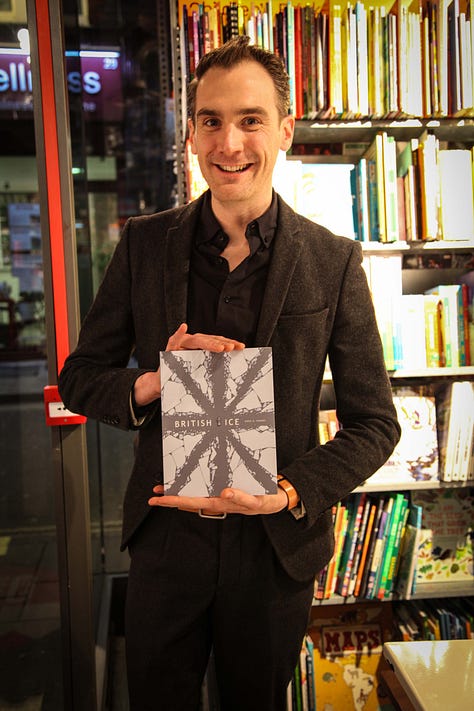
The copies of British Ice that the wonderful Gosh! Comics got in for the launch are probably the only copies that made it onto UK shelves. The reason for choosing a bigger US publisher at the time was to tap into their large and established distribution network. Top Shelf would have the ability to get it into all the bookshops my heart desired, however, these bookshops were now closed. And by the time they had opened again with any consistency, the publishing schedule had carried on turning, and bookshops, understandably, were not going back to stock-up on unknown graphic novels that had come out in the meantime. I mean, they were trying to get back on their feet for god's sake!
The publishing world had moved on, and in many ways, so had I. I had created Victory Point with such energy, despite writing the first script at the same time as British Ice, and it benefitted from the old Abraham Lincoln quote of, ‘If you give me eight hour to cut down a tree, I'll spend the first six sharpening the axe’. I had thought about it more, got better, and executed it more cleanly.
I'll be the first to admit that if Victory Point had not come out soon after, I would’ve been somewhat deflated by how British Ice was received. Years of work greeted with a fairly polite shrug. Much as many writers do when their first book drops off the production line into the sea of others, I witnessed it's uniqueness instantly dwarfed by the towering waves of EVERYTHING ELSE, before it was carried off to the horizon.
But Victory Point was my upper for this come down. For a combination of reasons, some of which I've just covered, people responded more to Victory Point. That is not to say there was anything bad said about British Ice, but I felt the warmth of reception to my more recent effort far more keenly, although much of this was out of my control.
For example, I totally get that a book set in a sunny seaside town about gentle reflection on life's direction, is going to land better in a global pandemic, than the story of someone going insane in a lonely arctic house while reckoning with the legacy of colonialism.
On Reflection.
Recently, as occasionally happens, someone reached out to tell me they had just read and enjoyed British Ice. They were reading it for what it was, five years later, with none of my personal thoughts and feelings, no pandemic, just enjoying it for what it is.
I took a copy off my shelf and flicked through with an uncomplicated kindness I had a not afforded it in a long while.
I learned a huge amount making British Ice, and I'm proud of it. I would not be able to make the work I do now if I hadn't made it. I also wouldn’t make it the same way again, and in some ways that would be better, and in others, far worse. But that is irrelevant, it is its own thing. The sum of everything I knew and was capable of at the time.
But I did it. The first example of the thing I always wanted to do, but thought impossible. And now, a complete stranger has come across it in the world, read it, and liked it.
I’m very grateful for that. And what more could I possibly want?
So, (without any of the self-deprecating caveats I desperately want to include), if you fancy an icy tale of horror and colonialism, inspired by the 80s/90s B-movies I would watch as a kid, then you should treat yourself to a copy.
It's very much available wherever you buy your books online, but all the better to go to your local bookstore and get them to order it in.
For what it’s worth, Publishers Weekly described it as;
‘An evocative “arctic noir,” this graphic novel unfurls a study in desolation, mounting tensions, and chilling atmosphere.’
Thanks for dropping by. Enjoy your day, and I look forward to seeing you again soon.
Owen D. Pomery.




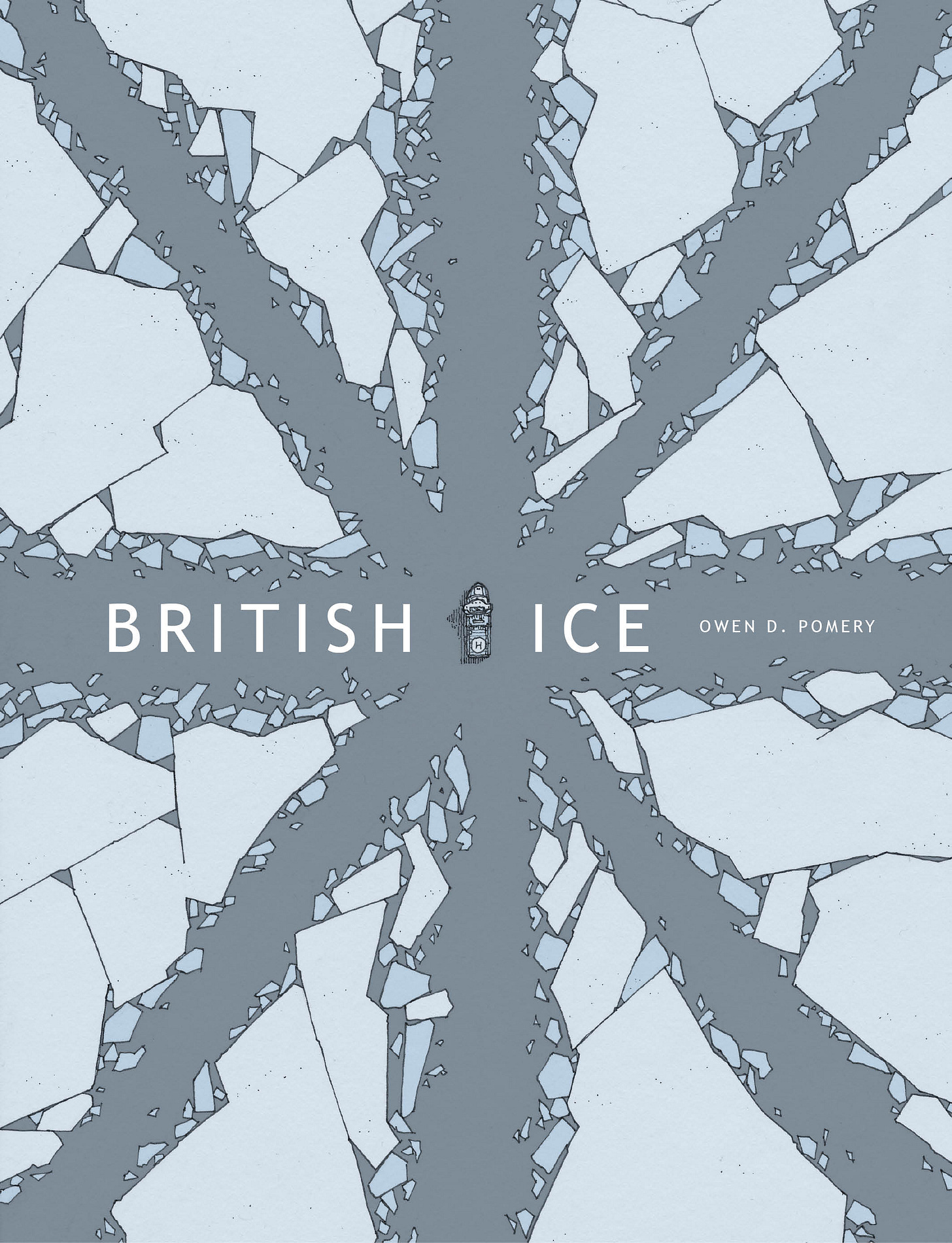
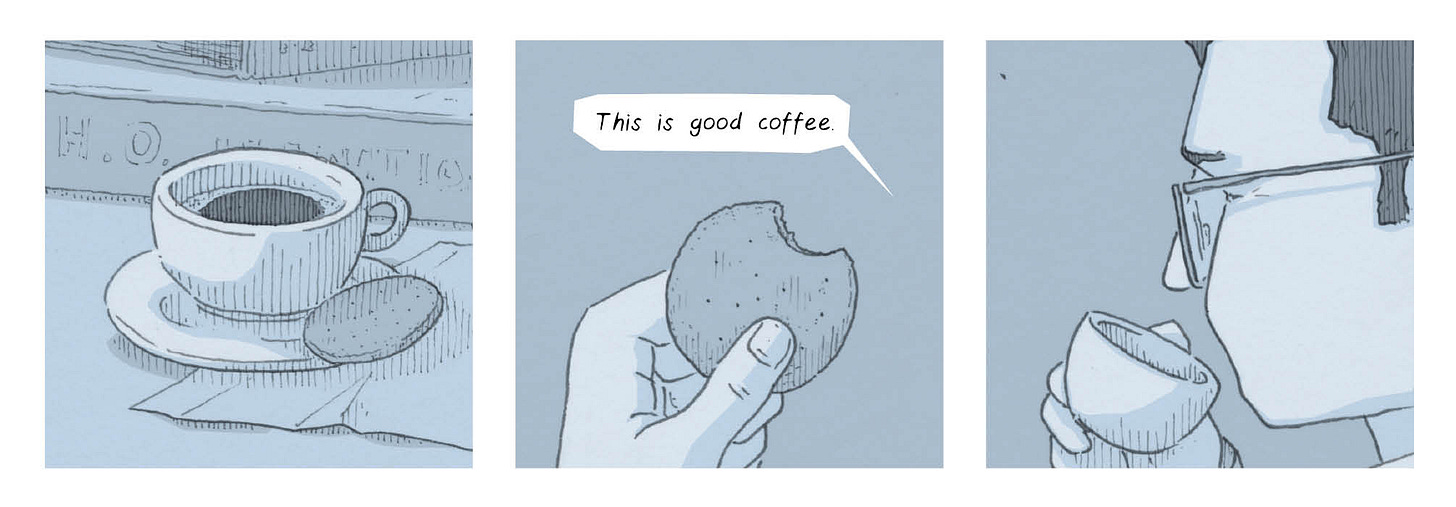
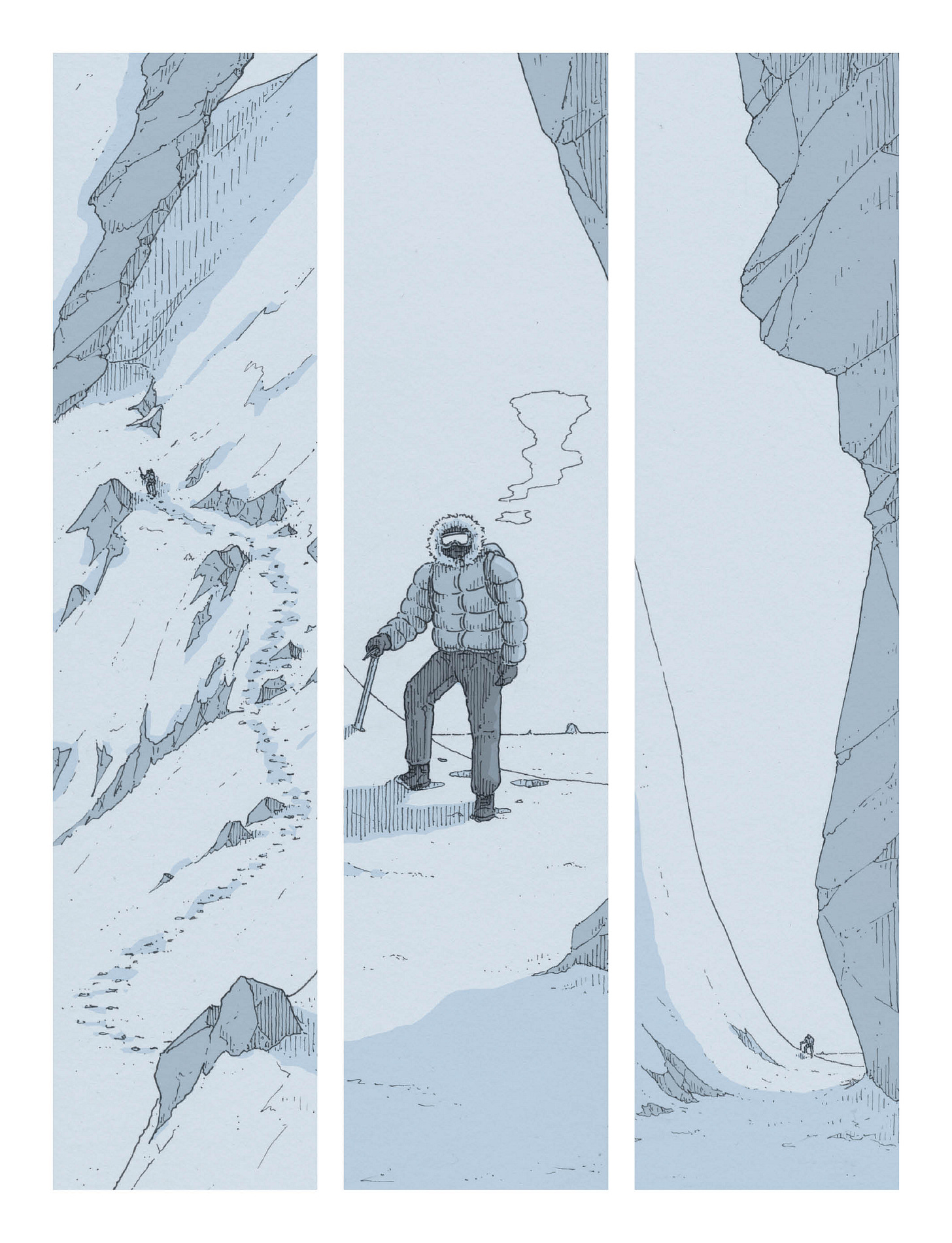


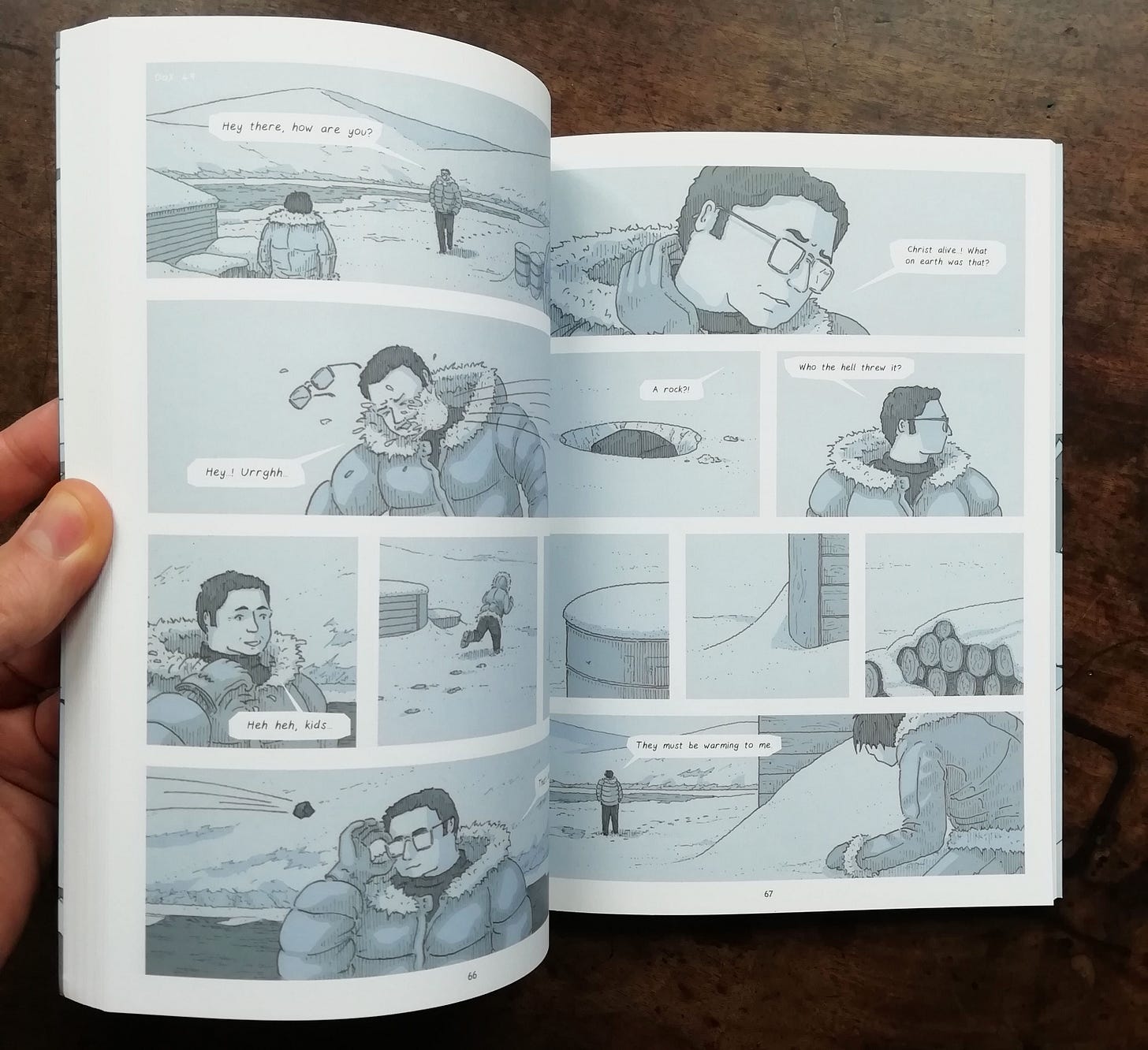
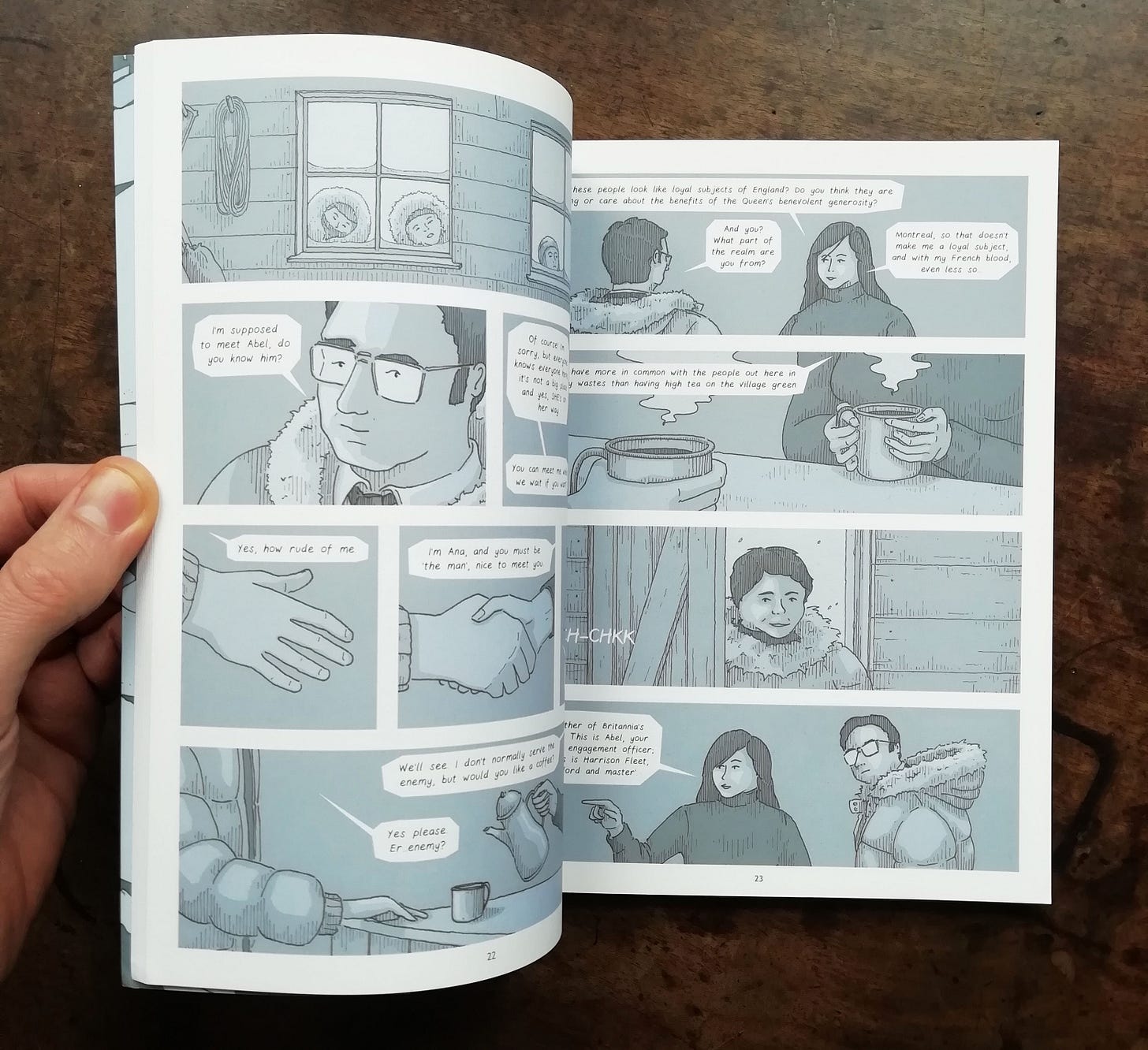
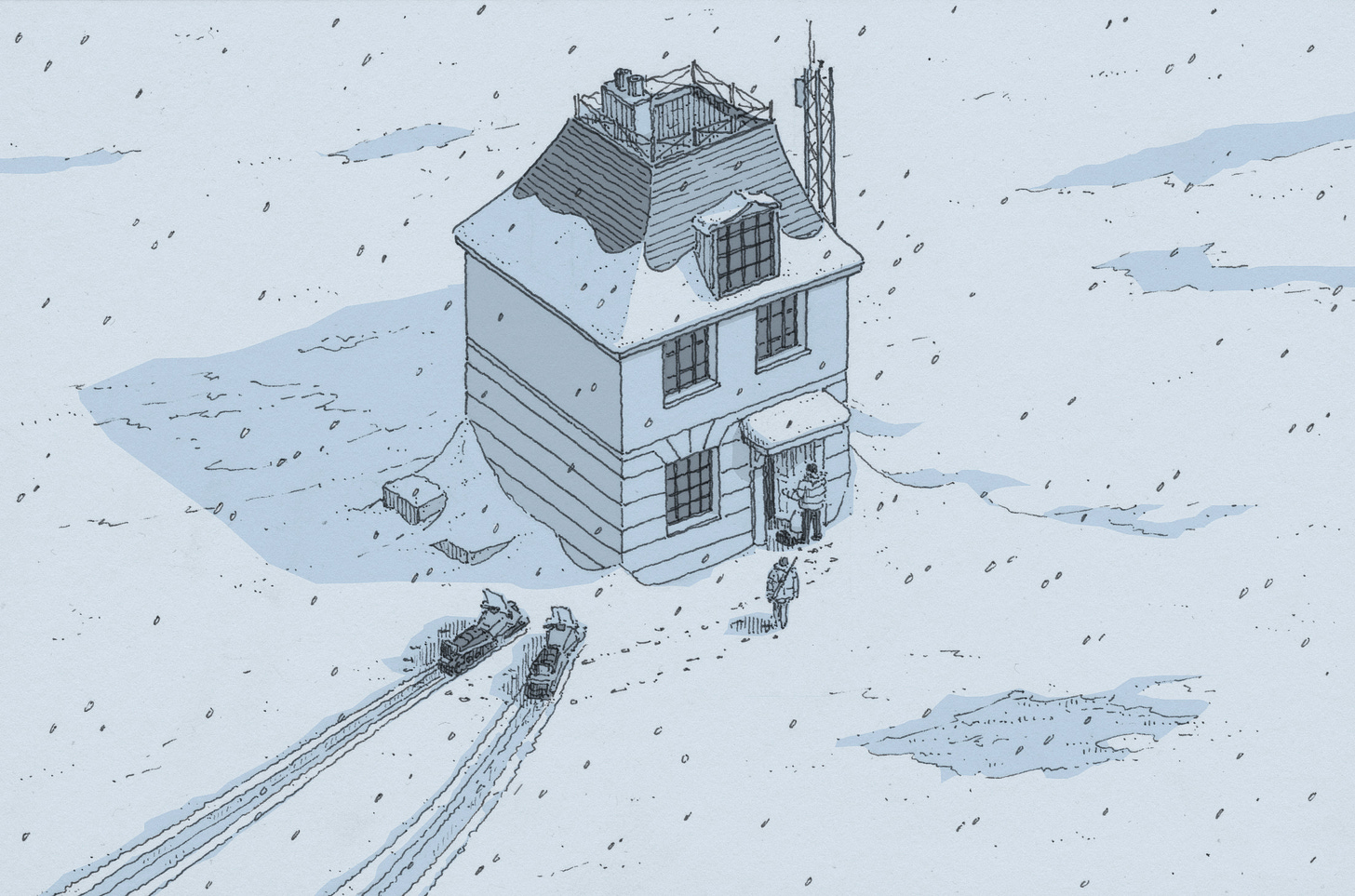

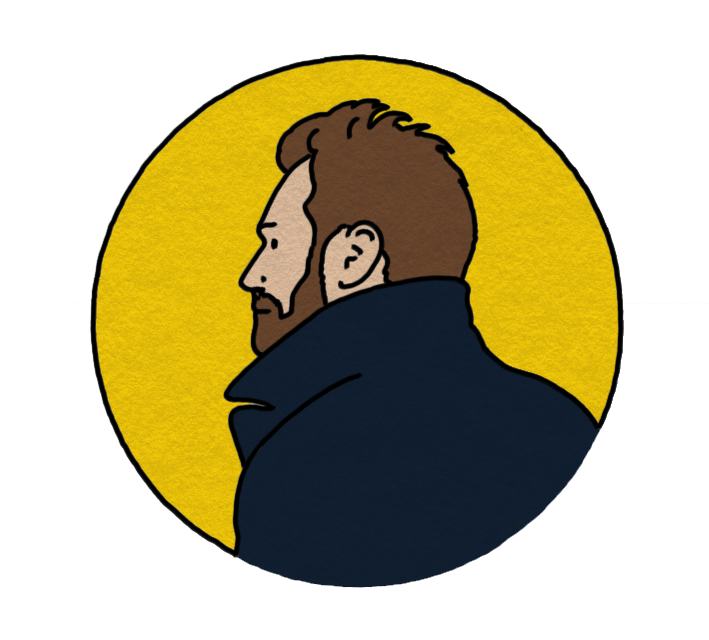
I hadn't picked this up yet. I will. Thanks for the reminder.
Really fascinating post. Love seeing the complicated relationship authors have with their work. I’ve read pretty much all your other books but not British Ice. Will get myself a copy